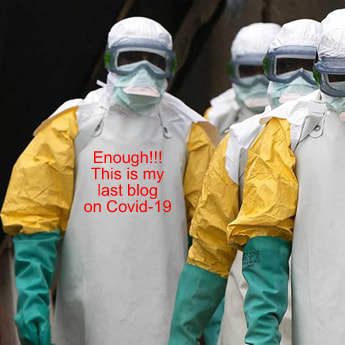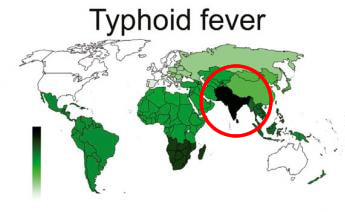I remember the prejudice. I remember the offensive term Gay Related Immune Deficiency (GRID) and the unhelpful public health campaigns. I also remember the movie Philadelphia with Tom Hanks and Denzel Washington which showed how many people felt about HIV. I remember being in a class at school called “Personal and Social Vocational Education” where we were discussing what we would do if we came across a person with HIV bleeding to death… and I remember being shocked and surprised that I was the only person in the room who would try to help the person…
|
I grew up in the 1980s. I know I’m getting old, not far off 50 now, but I still remember the impact of the discovery of Human Immunodeficiency Virus (HIV) and the effect it had on society.
I remember the prejudice. I remember the offensive term Gay Related Immune Deficiency (GRID) and the unhelpful public health campaigns. I also remember the movie Philadelphia with Tom Hanks and Denzel Washington which showed how many people felt about HIV. I remember being in a class at school called “Personal and Social Vocational Education” where we were discussing what we would do if we came across a person with HIV bleeding to death… and I remember being shocked and surprised that I was the only person in the room who would try to help the person… Over the past few weeks I have seen a lot of patients being admitted with infections due to the bacterium Staphylococcus aureus, which we have grown from their blood cultures. S. aureus is a common pathogen, but the number of positive blood cultures has been above our normal baseline, and I have found myself giving the same advice over and over again to the ward doctors looking after these patients.
S. aureus bacteraemia is a serious infection with a mortality of at least 20%; that is on average 20 in 100 people with S. aureus in their blood will die despite what we do to try and help. That’s a lot! And it gets even worse if you can’t find the cause of the bacteraemia, up to 60%. The mortality for S. aureus from an unknown source is so high for lots of reasons; patients are often frail or have underlying immunodeficiencies, but also because if you can’t find the “focus” you can’t easily undertake “source control”. If you can’t control the source, then the infection will persist…! Your patient might not!!!! So, one of the key parts to dealing with S. aureus bacteraemia is finding the source or focus of infection so you can deal with it. NOTE: Don’t forget to treat the patient whilst looking for the source. S. aureus is a serious pathogen, so don’t wait for your investigations or results… treat first and then ask the questions! “Hello, is that the Duty Microbiologist? I’m a local GP, could I please discuss a patient with you?”
The Microbiologist put down his cup of coffee, yep, coffee, it may be the hottest day of the year out there, but here in the lab it’s air-conditioned to the point of refrigeration!!!! “Go on then” said the Microbiologist being his normal cheery self. The Microbiologist looked around the room expectantly. The subject of today’s Registrar and Clinical Scientist teaching was zoonotic infections. In fact, it had been the subject of teaching for a number of weeks as the topic was enormous! The trainee Clinical Scientist who had suggested the topic was beginning to wonder what they had let themselves in for as the Microbiologist was clearly enjoying himself way too much!
“So, what can you tell me about deer fly fever?” he asked. The trainees all looked at the floor, the ceiling, each other, in fact anything to avoid making eye contact with their overzealous teacher. “Come on, come on” encourage the Microbiologist, “it’s a possible FRCPath exam question.” Still nothing… “Okay, what about if I said the patient had recently returned from a summer holiday in Martha’s Vineyard, a 96-square-mile island shaped like a shark’s tooth off the coast of Massachusetts, with a high fever and severe pneumonia?” The silence was deafening… Then the Registrar piped up “isn’t that where the 2010 film Ghost Writer was set? Yeah, Martha’s Vineyard, yep, I’m sure it was! Some big cast names in it too”. No, I’m serious… what is Covid? I hear it all the time. Someone coughs, is it Covid? Someone sneezes, is it Covid? Some say they feel a bit under the weather, is it Covid? I even had the discussion with my parents at the weekend… ECIC (aka my wife) has a bit of a cold and they say, “has she got Covid?”
So, what is Covid? To start with, “Covid” isn’t anything. The actual name for the disease cause by the Severe Acute Respiratory Coronavirus type 2 (SARS CoV2) was Covid-19; it was an acronym for COronaVirus Infectious Disease 2019. But now it has been reduced to a snappier “Covid”. I have also been asked if someone has “caught covid”…NO! You cannot catch Covid-19, you can catch SARS CoV2, that is the name of the virus. It is so reminiscent of the horror show that was HIV back in the 1980s… even senior health professionals thought you could catch AIDS (Acquired Immune Deficiency Syndrome) …NO! You cannot catch AIDS, you can catch Human Immunodeficiency Virus (HIV). Covid-19 and AIDS are the names of the clinical diseases, not the causative viruses. So, when we think about Covid-19 being a disease, a group of symptoms if you like, then the question “what is Covid-19?” actually starts to make more sense. I can just imagine the conversation:
“Goldberger, I need you to go down South and investigate an outbreak” demanded the Surgeon General. “Yes Sir!”, replied Dr Joseph Goldberger, “Errr, what outbreak am I investigating Sir?” “The leprosy-like skin infection outbreak that no one has ever been able to discover a cause for of course, it’s affecting millions of people down there.” “Yes Sir!” replied Dr Goldberger again, whilst probably thinking with a sinking heart “OMG, this sounds like a nightmare…” But when you work for an organisation such as the US Public Health Service in 1915 and your boss tells you to do something you pack your bags and off you go. So he did… If you were a Little Miss or Mr Man who would you be? Little Miss Naughty or Little Miss Fabulous? Mr Bump or Mr Perfect? Or would you be one of the brand new Little Miss or Mr Men; Little Miss Brave or Mr Calm? The choices seem almost endless! I like to think I’m Mr Clever, but ECIC thinks I’m more like Mr Silly… thanks a lot Little Miss Trouble!
“We have a septic lady who has just returned from a trip to India. She also has a headache and diarrhoea. We think she might have typhoid but want to cover for meningitis as well as this. What do you suggest?”
The Microbiologist listened as the Emergency Department (ED) Consultant expanded on the story with where exactly the patient had been in India, what she had been doing there and what pre-travel vaccinations she had had. It was a great presentation and showed that the Consultant had clearly been listening to the teaching on fever in a returning traveller that the Microbiologist had given the week before! “Okay, she’s been to the North of India, we’d better cover for XDR typhoid as well as meningitis and other potential causes of sepsis. The best thing to do is start IV Meropenem 2g TDS, and if it’s not meningitis then we can reduce the dose to 1g later” replied the Microbiologist. “Isn’t IV Ceftriaxone the normal first line for typhoid?” asked the ED Consultant. “It is” replied the Microbiologist, “unless you have the XDR typhoid which is currently causing mayhem in Pakistan next to India, XDR is Ceftriaxone resistant and so you need Meropenem instead.” “Crikey!” exclaimed the ED Consultant, “long gone are the days when I could treat this with Ampicillin…I’m sure Typhoid Mary would have accepted Ampicillin!” “We all feel a little old these days, I find it’s more about the mileage not so much the years…!” said the Microbiologist. “May I discuss a patient with you please?” asked the ward Doctor.
“You want to discuss a patient? Okay, but this telephone line is terrible” replied the Microbiologist, wondering whether the “new” telephone system in the hospital was really an “improvement”. “Sorry, it’s a bit difficult to hear you” said the ward Doctor, “I wanted to discuss a patient with enlarged glands in the neck.” “What?!” exclaimed the Microbiologist, “you think your patient has glanders! Why do you think they have glanders?” “Yes, they have large glands …in their neck.” “Glanders is extremely rare, and very severe, have you started antibiotics?” “Yes, we want to start antibiotics.” The telephone line was still terrible, and the Microbiologist was starting to get really worried. He looked at the number listed on the phone recognising it as the Acute Medical Unit where patients were admitted. “I’m coming to you, wait for me there” said the Microbiologist putting down the phone. “Blooming Microbiologist,” muttered the ward Doctor, “he just hung up on me!” What is glanders? Glanders is principally an infection of “solipeds” …that’s horses, donkeys and mules to you and me. It is caused by the bacterium Burkholderia mallei, a small, Gram-negative, oxidase positive, bacillus, that only replicates inside its living host being unable to survive in the environment. B. mallei is not to be confused with a similar bacterium I blogged about way, way, back in 2017 called Burkholderia pseudomallei which causes a condition called melliodosis and which is able to survive in the environment! |
Facebook has deleted the Microbiology Nuts & Bolts pages - if you want your weekly dose of microbiology then you will need to come here, and we look forward to you continuing to read it!
Blog Author:
David Garner Please DO NOT advertise products and conferences on our website or blog
Categories
All
Archives
November 2022
Categories
All
|










 RSS Feed
RSS Feed
